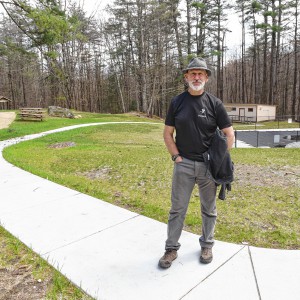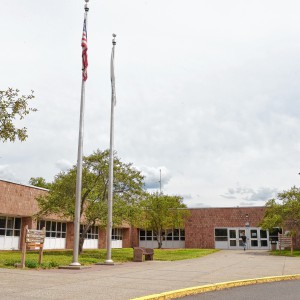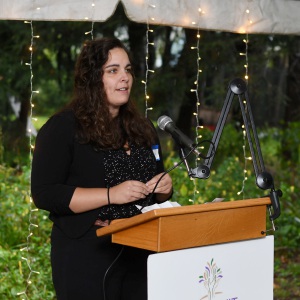Views mixed on youth crime pendulum
| Published: 03-26-2023 1:10 PM |
GREENFIELD — The statistics are out there, but some say they don’t show the whole picture.
Glance at a youth crime rates chart with proverbial blinders on and you’ll feel as though numbers have recently climbed to an unprecedented degree. But, as those with the nonprofit Citizens for Juvenile Justice point out, doing that is like driving with tunnel vision. Citizens for Juvenile Justice Executive Director Leon Smith says crime among Massachusetts youth has continued to decline from 2018 to 2021, and any jump is really just a return to pre-pandemic levels.
“It looks like massive spike, but it’s not,” Smith said. “We were back to where we were before.”
He said youth crime decreased during the COVID-19 pandemic likely because young people were resigned to their homes as opposed to schools and public spaces. But it took a toll on people’s mental health, fueling youth crime rates as pandemic restrictions loosened.
“That is absolutely what we’re seeing, unfortunately,” Smith said. “The pandemic really did a number on our communities, from a mental-health perspective.”
Police departments in Franklin County report varying effects of the fading public health crisis. For instance, the Montague Police Department reported hardly any arrests during the pandemic and is seeing an increase now, whereas criminal events committed by juveniles in Greenfield jumped from 23 in 2020 to 60 two years later.
“I was surprised by the results I got,” Greenfield Police Lt. Todd Dodge said, referring to his research on youth crime data in his department’s computer system. “I assumed it would have gone down.”
Dodge explained the criminal events range from larceny to assault to rape. There were 44 criminal events in 2021 before it grew to 60 in 2022. He said there have been nine so far this year.
Article continues after...
Yesterday's Most Read Articles
 Cleary Jewelers plans to retain shop at former Wilson’s building until 2029
Cleary Jewelers plans to retain shop at former Wilson’s building until 2029
 Orange man gets 12 to 14 years for child rape
Orange man gets 12 to 14 years for child rape
 $427K to expand Camp Apex capacity in Shelburne
$427K to expand Camp Apex capacity in Shelburne
 Conway resident leading pilot program to help families facing financial ‘cliff effect’
Conway resident leading pilot program to help families facing financial ‘cliff effect’
 Franklin County Technical School Honor Roll, Semester 1
Franklin County Technical School Honor Roll, Semester 1
 Greenfield Police Logs: April 2 to April 8, 2024
Greenfield Police Logs: April 2 to April 8, 2024
“I don’t believe the frequency in which a juvenile has committed a crime has changed — the manner in which they are being handled has,” he said. “I think a lot of agencies have their own reporting requirements.”
Christopher Williams, Montague’s police chief, said there were 13, 11 and 15 juvenile summonses in 2019, 2020 and 2021, respectively. There was one juvenile arrest each of those years. There were six arrests and 35 summonses in 2022, but Williams explained these were largely contained to a large amount of vandalism cases committed by the same group of youngsters. All those crimes were investigated and solved.
Williams said he cannot pinpoint the motive for these crimes, but peer pressure mixed with teenage rebelliousness, a troubled home life and pandemic-related anguish can be a formula for criminal behavior.
According to Citizens for Juvenile Justice, juvenile arrests in Massachusetts peaked in 2008 at 11,326. In 2020, there were 3,420, making for a 70% decrease. Massachusetts raised the age of juvenile court jurisdiction to include 17-year-olds in 2012. This resulted in a small uptick in juvenile arrests in 2013, as it was the first year during which the data included 17-year-olds. However, the downward trend continued the following years, and plummeted to below the 2012 rate by 2016. Citizens for Juvenile Justice reports preliminary data from 2021 reveals the continued decrease in arrests for juveniles, with a 15% decrease between 2020 and 2021.
Orange Police Chief James Sullivan thinks juvenile crime is woefully underreported, however. The criminal justice legislation signed into law in April 2018 “drastically changed the way law enforcement can deal with juveniles,” he said.
“I’m a little skeptical on whether it has made a positive impact on juvenile recidivism,” he said. “Law enforcement’s hands are tied in regards to what they can do in a lot of circumstances, and the courts are as well.”
The legislation decriminalized nonviolent school-based public order offenses by students 17 and younger as well as the first-time violation of certain low-level offenses, including violations of local ordinances, for all children. It also excludes elementary-age students from delinquency proceedings by raising the age of juvenile jurisdiction from 7 years to 12 years.
“My concern is that there is a lack of accountability with juveniles. The wrong message is sent if there are no repercussions,” Sullivan said. “But I don’t think anything but time and data will prove it.”
Dodge said he is all for finding ways to prevent a 14-year-old’s bad decision from haunting them when they apply for jobs eight years later, but agreed with Sullivan that the 2018 legislation makes it difficult to discipline students who disrupt school with disorderly conduct.
“I think it’s too early to tell, to be honest with you,” he said. “There’s not an officer here at this agency, that I know of, that likes to arrest juveniles. We don’t like to do it.”
The state impounds all information pertaining to any case in its Juvenile Court Department.
Deerfield Police Chief John Paciorek Jr. said he had reviewed his department’s juvenile statistics and noted his officers remain committed to the state Legislature’s intent to resolve nonviolent juvenile issues through more appropriate means than the criminal justice court system.
“It is important to have a true partnership with the families, schools, police department and other working programs, including the [Northwestern] District Attorney’s Office diversion programs, and that’s why I’m a true proponent of the school resource officer program,” he wrote in an email. “Our program is based off of assisting and supporting juveniles and families, even when mistakes are made.”
Paciorek said his department has noticed some challenging behavioral issues among juveniles since the pandemic began.
“However over the past year, we have seen a significant improvement,” he wrote. “I credit our amazing educational faculty, counselors and school administration.”
More information about Citizens for Juvenile Justice is available at cfjj.org.
Reach Domenic Poli at: dpoli@recorder.com or
413-930-4120.

 PHOTOS: Blended learning
PHOTOS: Blended learning 15th annual NELCWIT fundraiser set for Thursday
15th annual NELCWIT fundraiser set for Thursday With eye toward teaching firearm safety, Mahar’s Junior ROTC adding air rifles
With eye toward teaching firearm safety, Mahar’s Junior ROTC adding air rifles
